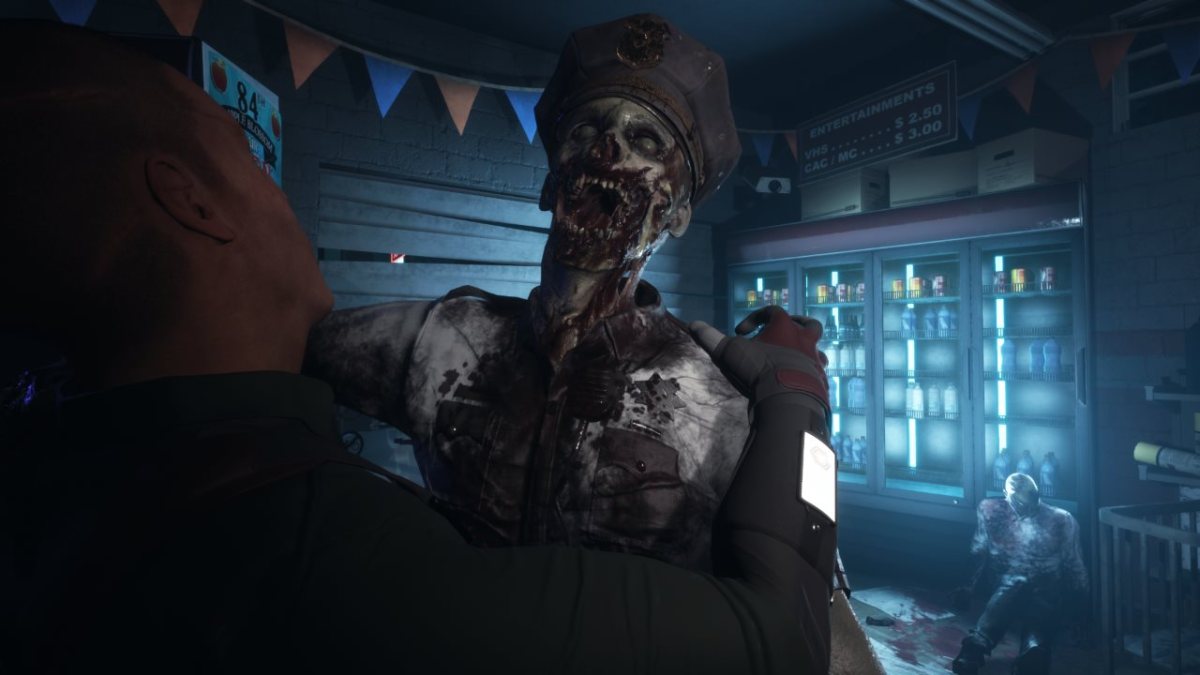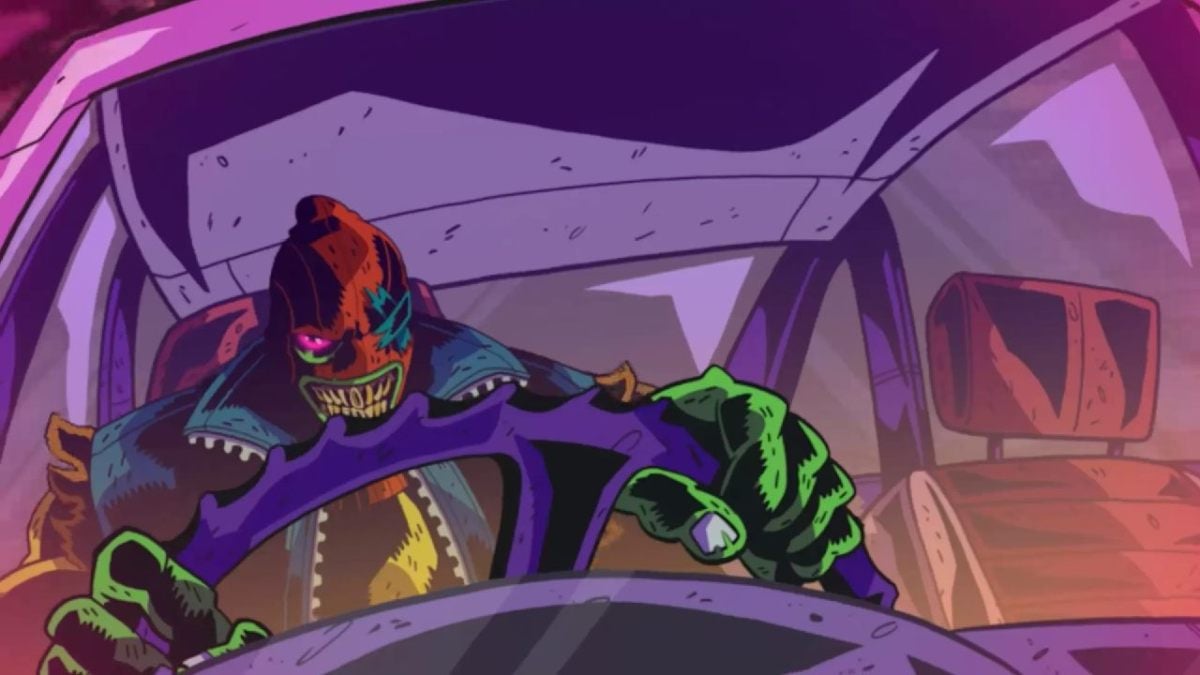Remember the late 90’s? Remember when game companies figured out how to do survival horror just right? Remember how they then spent the next decade forgetting all the important lessons learned in that magical time? Invader Studios certainly does and they seem to want to remind us all of that wonderful time period when the genre was king and its mechanics were firmly rooted in both survival and horror, with action taking its place way in the back of the line. To do this they’ve crafted Daymare: 1998, a tribute to classic survival horror adventures like Resident Evil. Unfortunately, while it reminds players of the things those games did right, it also is full of all the things they did wrong.
Daymare: 1998’s story unfolds through multiple chapters, offering different points of view on the events that play out. In summary, there’s an outbreak that’s turning people into bloodthirsty zombies. You’re not really there to stop it, specifically, but as the game continues you’ll come to understand what happened and why. As you venture through the dimly lit passages and streets of the game’s various levels you’ll encounter a multitude of dangers including random zombies, mini-bosses, and other creatures, but you may be the biggest monster of them all.

Daymare: 1998 wears its inspirations proudly on its sleeve, letting everyone know that it’s pulling from some of the best of the best. It draws most from Resident Evil and its first two sequels though. This all sounds great on paper, especially to someone who loved those original adventures. What this means in practice though is that you’ll have a hit of nostalgia before realizing that there’s little here to surprise you in the plot department, and other areas are hurt even more. Daymare: 1998 simply has some of the worst writing and voice acting I’ve seen in video game in some time. This does enhance the nostalgia somewhat as visions of Jill Sandwiches dance in your head, but it can be pretty cringe inducing for the most part.
Daymare: 1998 takes inspiration not only in the story department, which features shadowy government agencies and paramilitary groups with forced acronyms like H.A.D.E.S. But also in the gameplay with slow enemies, extremely limited ammunition, and puzzles galore. Unfortunately it again seems to just port over the experience of the 90’s, rather than improving on them. Your character moves very slow, even at a sprint. Enemies soak up damage, taking multiple head shots to bring down. And while more recent survival horror games put an emphasis on tactical thinking, like aiming for ankles to get past enemies, Daymare isn’t quite as responsive or inventive. The puzzles as well suffer from overthinking and underdevelopment, with some not really taxing your brain, so much as your patience and rote memory.
Daymare: 1998 wears its inspirations proudly on its sleeve, letting everyone know that it’s pulling from some of the best of the best.
That isn’t to say Daymare: 1998 is a retro game in all respects. Where it improves things is in the presentation, switching to in-universe menus and an over-the-shoulder third-person perspective. This, along with the very solid graphics and art, does create a more modern take on the classic survival horror genre. The game looks very good considering its indie roots and discount price tag. Although character models and textures aren’t great, and repetitive and overly long animations lead to actual gameplay issues as you try to conserve ammo but have to decide if another shot is necessary.
Speaking of ammo, the inventory system in Daymare: 1998 is truly its worst innovation on the classic survival horror formula. Inventory management as a whole is slow and difficult, forcing players to navigate in-universe menus that are simultaneously overloaded with info and yet bereft of the information you require at the time. Ammo is where this plays out the most, with Daymare going ultra-realistic in its higher difficulty levels by making players manage magazines, rather than just lumping ammo into one big pot.

For example, tapping reload will drop your current mag and any bullets within it, while slowly reloading, or combining boxes of bullets and magazines in the inventory screen will not waste bullets. It’s good that this is optional, as it became annoying right out of the gate. Though if you’ve been hoping for a more realistic and grounded take on survival horror then this may be what you were looking for. Most players will want to disable this right away though.
What all of this adds up to is a game that hits most of the goals it sets for itself, but that doesn’t equate to a good gaming experience. Daymare: 1998 looks and plays like an updated take on late 90’s survival horror, especially Resident Evil 2. However, it doesn’t update enough to feel wholly new or separate from the classics that it takes its inspiration from, and ends up both falling into some of the same traps and creating new ones for itself. And while the game has a budget price there’s no excusing the poor writing and voice acting, even if you call it an homage. And with Capcom already bringing survival horror back to its roots in a far superior way with Resident Evil 2 Remake, there’s little reason for even die hard fans to put the effort in here.
The Verdict
Daymare: 1998 succeeds at recreating the classic feel of late 90’s survival horror, but in more ways than it should. The game is cumbersome and frustrating at times when more modern takes have smoothed over those particular rough edges. It doesn’t introduce much to the formula beyond its patience-testing ammo mechanics, which most players will avoid. It crafts puzzles that are both annoying and obtuse without the feeling of satisfaction found in better takes on the genre. If you’re simply dying to relive classic survival horror than this fits the bill, but most will find that they actually didn’t want that after all.











Published: Sep 17, 2019 07:59 am